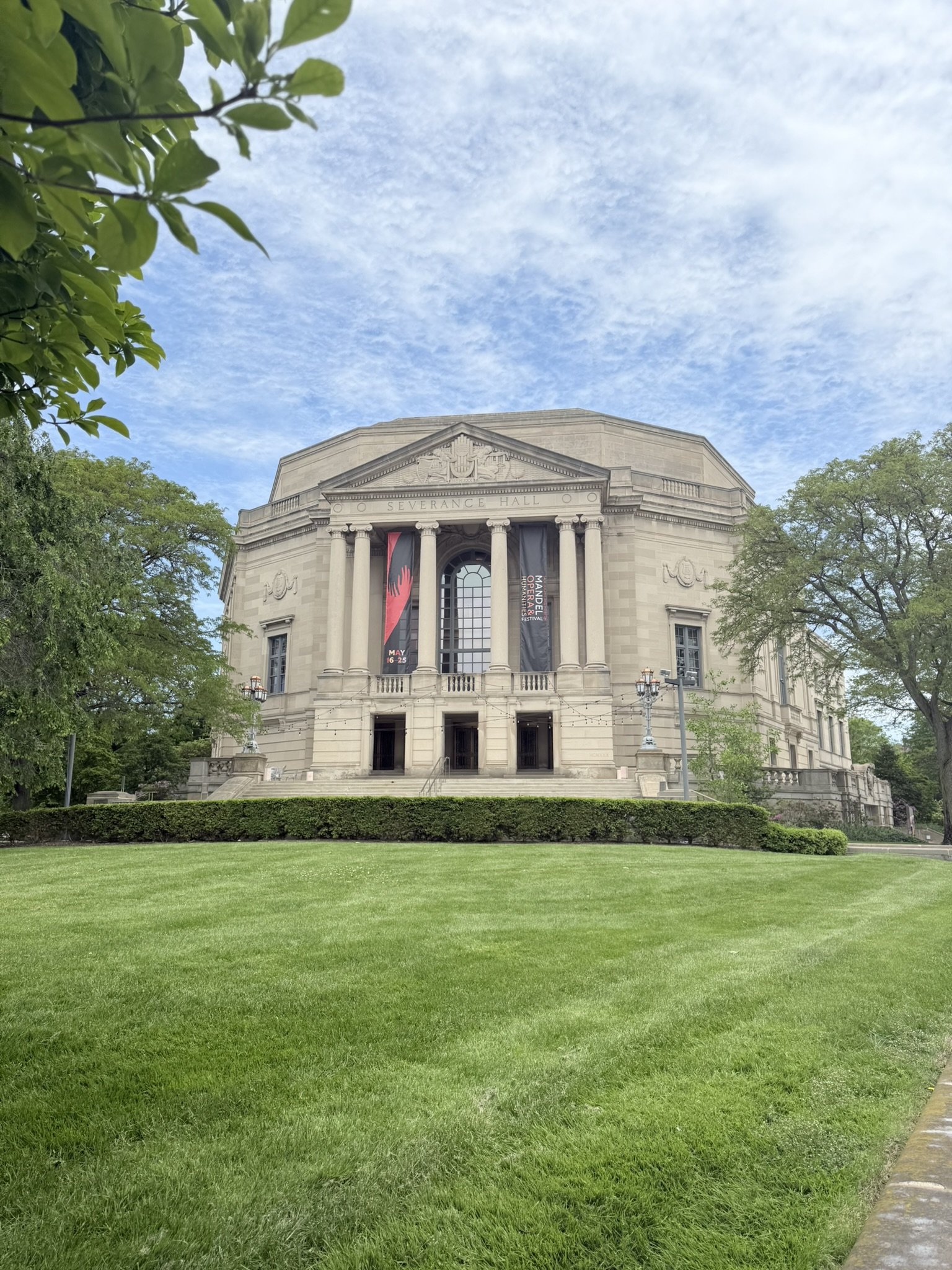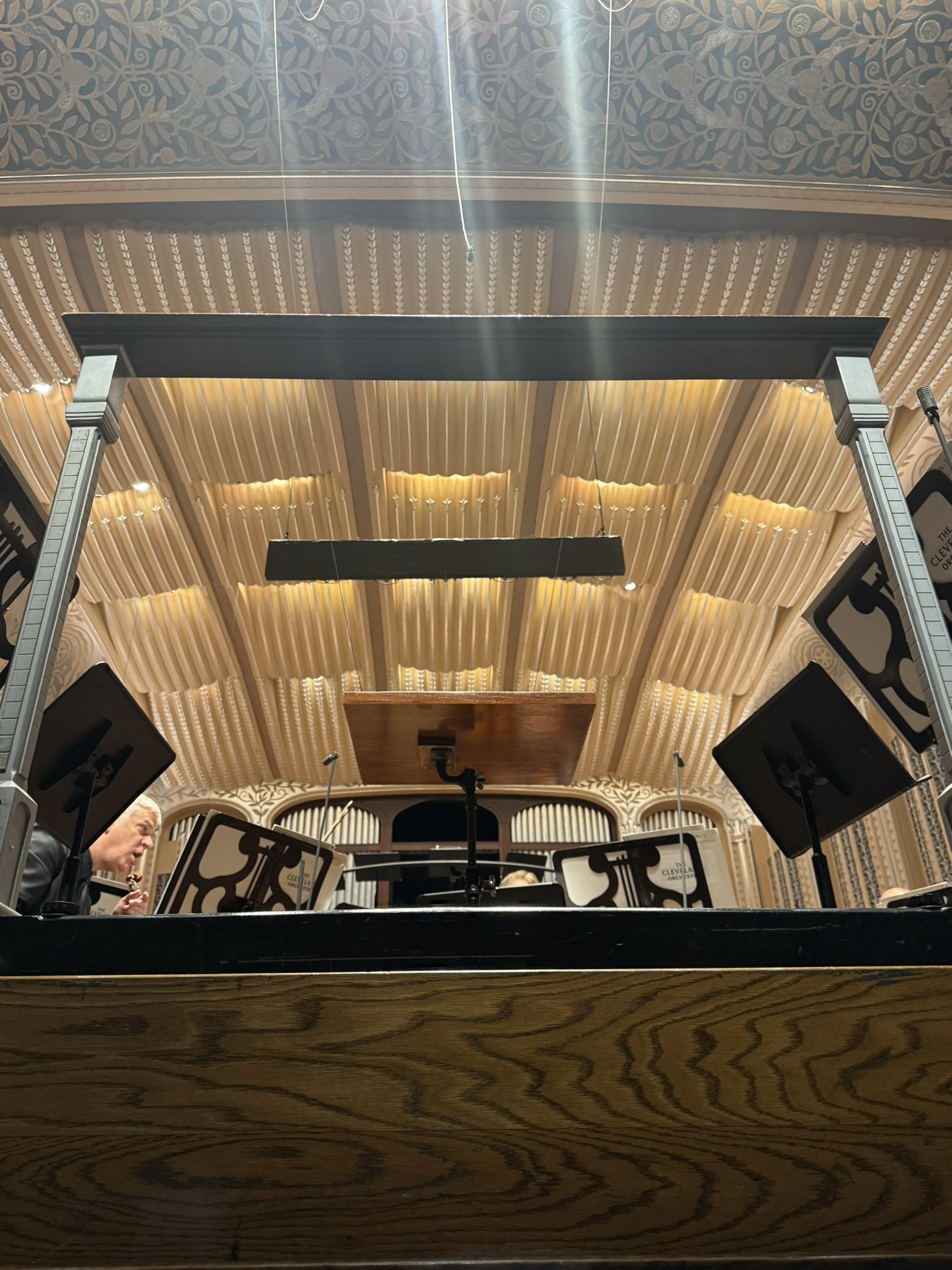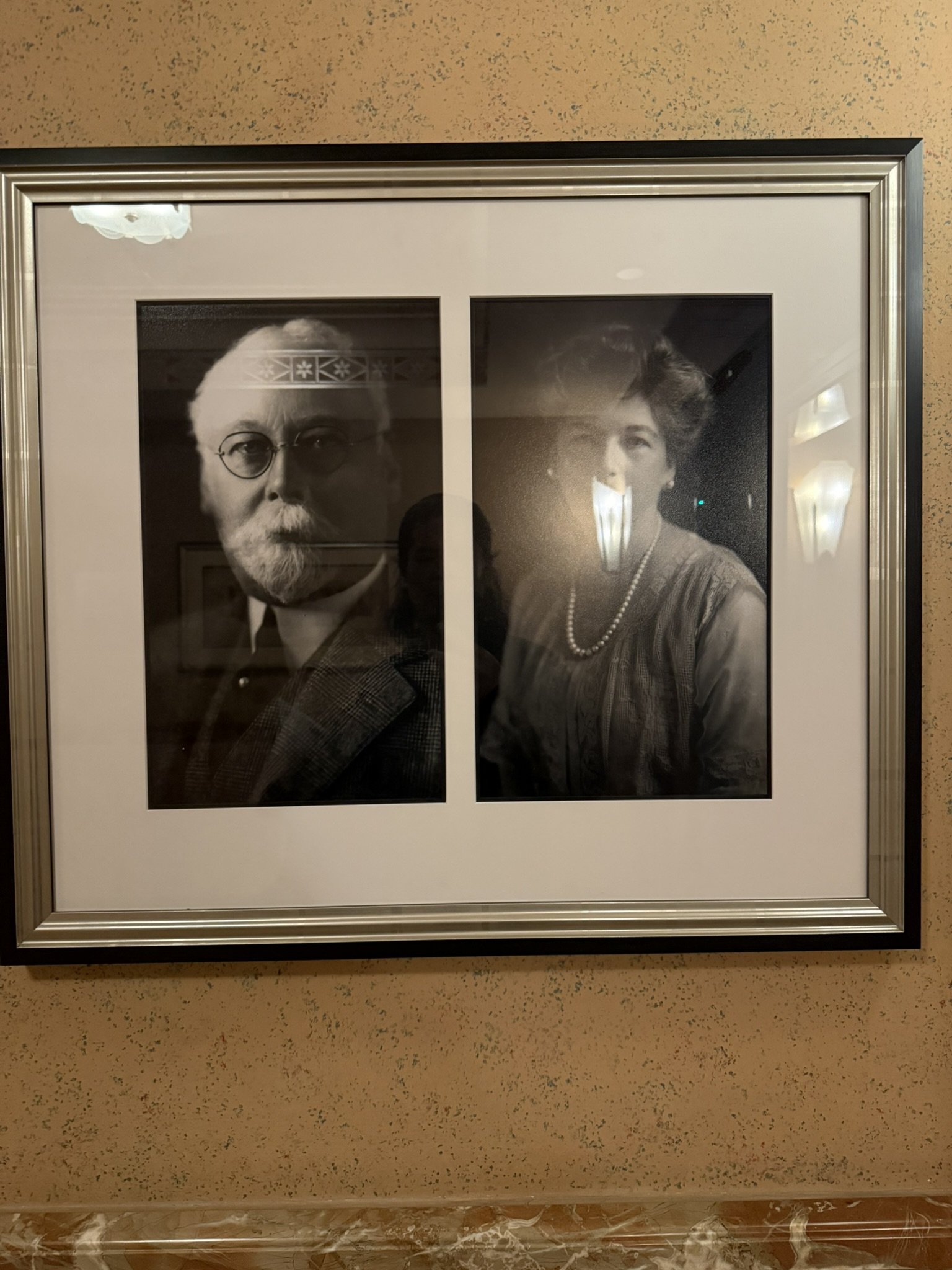“When you listen to the music in Jenůfa, it is very much earthbound. You have a soldiers’ dance and peasant songs, where there is no hiding behind affectations. “ - Franz Welser-Möst
On Sunday, May 25, the Cleveland Orchestra, under the direction of Music Director Franz Welser-Möst, performed Janáček's Jenufa in concert at Severance Hall in Cleveland, Ohio. The program notes included an article by Möst, which began with the words "The roots of forgiveness." They continued, "Janáček casts off the frivolity of aristocracy and explores the harsh experiences of real people, both in music and in story. This deep interest in the lives and suffering of ordinary people shapes the story and music of Jenufa, making it very visceral and accessible." A local person I spoke to at the venue told me, "When Jenufa realizes that Kostelnicka was acting out of love and protection, she can forgive her. Thus, this is not just a story of a messed-up family, but a truly moving story of sacrifice and community." Nina Stemme, who sang Jenufa in her youth, took on the pivotal role of the mother in this performance. Jenőfa's music skillfully combines instrumental tones and combines and builds short motifs to create grand emotions. There is no need for time-consuming interpretation like in Wagner's, and he portrays the hearts of ordinary people, where sound and emotion are instantly connected. The distance between the music and the audience is closer in the music of the Cleveland Orchestra at Severance Hall than when listening to them in New York. There is no need for the wasted energy that is spent in New York to immerse oneself in the work. I could understand very well why Möst chose this orchestra as his work partner when he was young. Surrounded by national highways, with a beautiful park and lake just across the road, the clear weather of Cleveland on a Sunday in May, and the interaction between people, both on stage and seats, through the music reminded me of when I was in my teens and twenties, when I was aspiring to be a musician, and I would judge the sound, and put all my energy into expression or the next moment. Cleveland and Möst have come to New York every year for 23 years, and I have listened to their performances every time, but Severance Hall was the first time I felt that way. I have enjoyed concerts with orchestras in Boston, Chicago, Philadelphia, and Los Angeles, but my experience at Severance Hall made me feel like I had rediscovered the feelings I had when I first began studying music.
JENŮFA
AN OPERA IN THREE ACTS
Leoš Janáček
COMPOSER
Gabriela Preissová
LIBRETTIST
Based on the play Její pastorkyňa
(Her Stepdaughter)
The Cleveland Orchestra
Franz Welser-Möst
CONDUCTOR
CAST (IN ORDER OF APPEARANCE)
Latonia Moore, Jenůfa
Marianne Cornetti, Grandmother
Buryjovka
Pavol Breslik, Laca Klemeň
Lucy Baker, Jano (Shepherd)
Will Liverman, Stárek (Mill Foreman)
Nina Stemme, Kostelnička Buryjovka
Miles Mykkanen, Števa Buryja
Sarah Hutchins, Barena & Aunt
Sarah Mesko, Shepherdess
Kyle Albertson, Mayor
Olivia Vote, Mayor’s Wife
Simone McIntosh, Karolka
The Cleveland Orchestra Chorus
5月25日(日)、オハイオ州クリーブランドのセヴェランス・ホールで、フランツ・ウェルザー=メスト音楽監督率いるクリーブランド管弦楽団によるヤナーチェク作曲『イェヌーファ』全曲演奏会を鑑賞した。プログラムノートはメストの言葉で、”許しの根源”で始まり、「ヤナーチェクは、貴族社会の軽薄さを脱ぎ捨て現実の人々の厳しい経験を音楽と物語の両方で探求していて、庶民の生活と苦悩へのこうした深い関心が、『イェヌーファ』のストーリーと音楽を形作り、非常に直感的で親しみやすいものにしている。」とあり、「イェヌーファは、コステルニチカが愛と保護のために行動していたことに気づき、彼女を許すことができた。したがって、これは単なるめちゃくちゃな家族の物語ではなく、真に心に響く犠牲と共同体の物語なのだ。」と、会場で出会った地元の方が教えてくれた。若き日にイェヌーファを歌ったニーナ・シュテンメが、この公演で重要な母親役を唱う。歌手が主役を演じた後、同じオペラの中でより経験を積んだ別の役に成長していくと、そのパフォーマンスに特別な味わいが加わる。イエヌーファの音楽は器楽の音色を巧みに組み合わせて、短いモチーフを組み合わせ積んでいくことで壮大な感情を生み出す。そこにワーグナーの様な時間のかかる解釈が必要なく、即時的に音と感情が結びつく庶民の心を描いている。イェヌーファの音楽はまさに地に足のついた響き。兵士の踊りや農民の歌が響き渡り、そこに虚飾の影など存在しない。
セベランスホールのクリーブランド管弦楽団の音楽はニューヨークで聴く彼らよりも、音楽と聴衆の距離が圧倒的に近い。作品に入り込むためのニューヨークで試される無駄なエネルギーがいらない。メストがなぜ、若いころこのオーケストラを自分の仕事相手として選んだかよく理解できた。国道に囲まれ、道路を挟んだ向かいには美しい公園と湖、5月の日曜日のクリーブランドの澄み切った気候、そして音楽を通じた人々の交流は、私が音楽家を目指していた10代、20代の頃、音を判断し、次の瞬間の表現に全力を注いでいた頃を思い出させた。ニューヨークで23年、毎年クリーブランドとメストはやってきて、その度に演奏を聴いてきたが、そんな気持ちになったのは、セベランスホールが初めてだった。ボストン、シカゴ、フィラデルフィア、ロサンゼルスでもオーケストラのコンサートを楽しんできたが、セヴェランス・ホールで体験したことで、音楽を学び始めた頃の感覚を取り戻したような気がした。
シュテンメの歌唱はそのパワーと的確な表現。若いころからずっと変わらないプロ意識と自己管理。自分よりも作品を伝える心。潔さ。ユーモア。音楽ファンのみならず、人として社会人として生き方として楽しみだけではなく、学びが多い。いつも胸が打たれる。
クリーブランド管弦楽団の総監督、フランツ・ウェルザー・メスト。全く飾らないこの姿勢とオーケストラとの信頼関係。もっと早く訪れるべきだったとニューヨークにいると感じる。
貴族社会の軽薄を排除した、現実の人々の生々しい体験が詰まっているヤナーチェクのイエヌーファの核となるテーマは許し。
セベランスホールの最前列、指揮台の後ろからの眺め。セカンドバイオリンのシュテファンがいる。彼はずっといるし、毎年ニューヨークにやってきた。セカンドなのにまるでソロのような卓越した演奏を繰り広げていた。オケは内声が立つと音楽の面白さの引き立て方がまた違う。それも全く感じさせない統合された世界をクリーブランドも繰り広げるが、面白いオケはトゥッティの中に全員ソロを感じる。
飛行機の座席の様なスペース。音楽とより親密。セベランスではオケの音色の積み方がカーネギーとは全然違う。一人ひとりが奏でる音色が積み重なり、小さなモチーフがやがて人々の心を揺さぶる壮大な交響体験となる。
ありがとう、セベランス。
総監督の自伝。全くその通りのタイトル。セベランスのお店で買えます。






